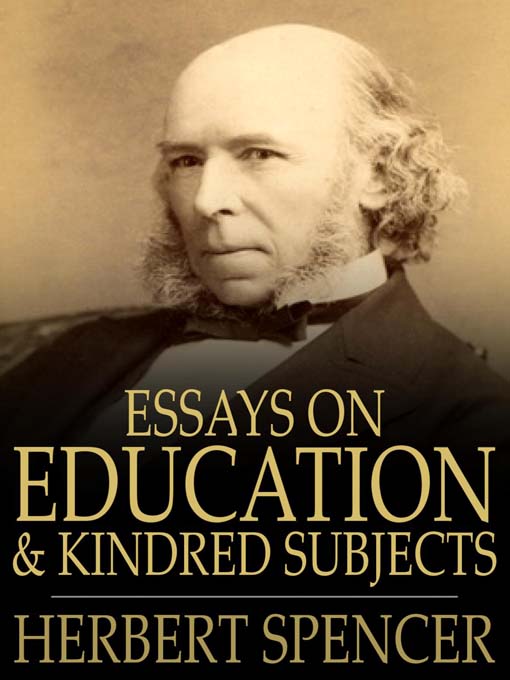Herbert Spencer was an English philosopher, prominent classical liberal political theorist, and sociological theorist of the Victorian era. The four essays on education which Herbert Spencer published in a single volume in 1861 were all written and separately published between 1854 and 1859. Their tone was aggressive and their proposals revolutionary; although all the doctrines - with one important exception - had already been vigorously preached by earlier writers on education, as Spencer himself was at pains to point out. The doctrine which was comparatively new ran through all four essays; but was most amply stated in the essay first published in 1859 under the title "What Knowledge is of Most Worth?" In this essay Spencer divided the leading kinds of human activity into those which minister to self-preservation, those which secure the necessaries of life, those whose end is the care of offspring, those which make good citizens, and those which prepare adults to enjoy nature, literature, and the fine arts; and he then maintained that in each of these several classes, knowledge of science was worth more than any other knowledge. He argued that everywhere throughout creation faculties are developed through the performance of the appropriate functions; so that it would be contrary to the whole harmony of nature "if one kind of culture were needed for the gaining of information, and another kind were needed as a mental gymnastic." He then maintained that the sciences are superior in all respects to languages as educational material; they train the memory better, and a superior kind of memory; they cultivate the judgment, and they impart an admirable moral and religious discipline. He concluded that "for discipline, as well as for guidance, science is of chiefest value. In all its effects, learning the meaning of things is better than learning the meaning of words." He answered the question "what knowledge is of most worth?" with the one word - science. In the present volume are also included three other famous essays written by him during the same period (1854-59) which produced the essays on education. All three are germane to the educational essays, because they deal with the general law of human progress, with the genesis of that science which Spencer thought to be the knowledge of most worth, and with the origin and function of music, a subject which he maintained should play an important part in any scheme of education.
- Available now
- New eBook additions
- New kids additions
- New teen additions
- Most popular
- Try something different
- See all
- Available now
- New audiobook additions
- New kids' titles!
- New teen additions
- Most popular
- Try something different
- See all

